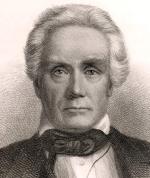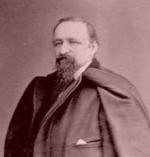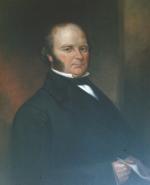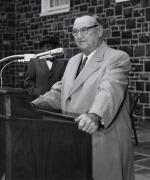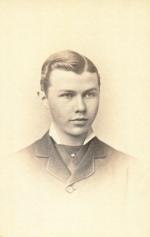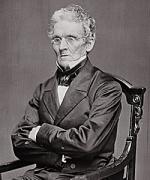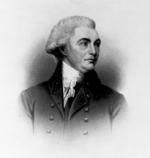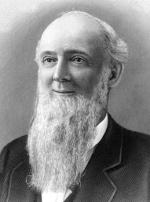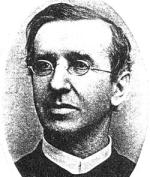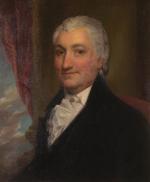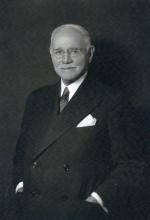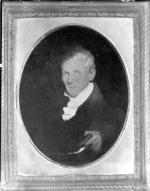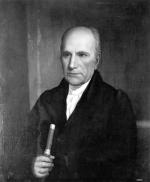Rolland Leroy Adams (1904-1979)
Rolland Adams was born on December 27, 1904 in Huntingdon, Pennsylvania to Lemuel B. and Carrie Adams. He attended Dickinson College as a member of the class of 1927, during which time he was a member of Sigma Alpha Epsilon. Adams then completed an extension course in finance from the Pennsylvania State University before entering a life-long career in publishing. He worked in various capacities, eventually serving as president of several publishing companies in Bethlehem, Pennsylvania. He was the owner and chief executive officer of the Bethlehem Globe Publishing Company until his retirement in 1970.
Adams was one of many alumni who renewed their commitment to the College during the 1950s Ten Year Development Program. During this time, the administration made new contacts and renewed previous connections with potential supporters of the College in an effort to increase its endowment. Adams was elected a trustee of Dickinson College in 1961. Two years later, the college opened Adams Hall, named for him and his first wife, Pauline S. Hornbach, whose generous donation made the new building possible. In 1966, Dickinson awarded Adams an honorary doctor of laws degree in recognition of his achievements and service. During his years as a trustee of the college, Adams served on the Executive Committee and on the Committee on Finance and Investments, and chaired the Committee on Nominations and Membership for three years. Rolland Leroy Adams died on September 1, 1979.


